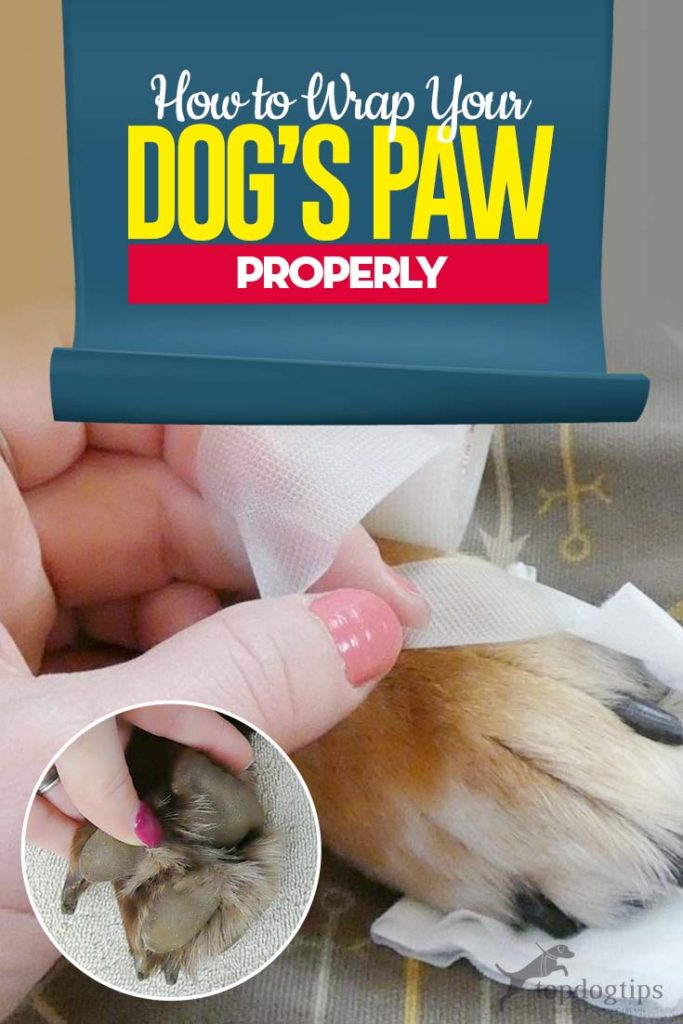You probably don't give your dog's paws much thought, but you should! Dog paws are not immune to health problems. Issues with your pet's feet could lead to serious health problems. Knowing how to wrap a dog's paw will come in handy in the event of an injury.
Your dog's paw pads provide cushioning to reduce stress on their bones and joints and protect against rough terrain. Did you know that the paw pads also provide insulation in extreme weather? Paw pads also help with balance and stability; their rough texture provides traction.
You should be checking your dog's feet regularly, particularly after walks. If you notice cuts or tears on your dog's paws, be sure to clean the wound properly and keep it covered. This will prevent infection.
After cleaning the wound, keep it covered for at least 2-3 days. Wounds on the paw are especially difficult to keep clean because they always touch the ground. Keeping them covered is important to prevent further injury and/or infection.
How to Wrap a Dog's Paw Properly
Supplies You'll Need
-
- Self-adhesive bandage wrap (California Basics)
- Medical tape (Hampton Adams)
Cleaning the Wound
The first thing you'll need to do is clean the wound thoroughly. Flush the area with water to remove any dirt or debris. Next, flush the area with hydrogen peroxide.
You only need to use peroxide once. It kills all bacteria in the wound, even the “good” bacteria that are helping to heal the area. After you've flushed with peroxide the first time, use only water when cleaning the dog paw wound in the future.
Once the wound is clean, apply topical antibiotic ointment. If you're looking for a natural alternative, try rubbing coconut oil on the infected area. It has natural anti-bacterial and anti-fungal properties.
If you're worried that the wound may be mildly infected, check out our guide for treating an infected paw. If the paw is severely infected, you need to seek veterinary care immediately.
Signs of severe paw infection include:
- swelling
- limping
- puss/discharge
- crying or whimpering when putting weight on the paw
- not wanting to put weight on the paw
- foul smell
RELATED: The Ultimate Guide of First Aid for Dogs

Wrapping the Paw
Once you have cleaned the wound, you'll need to wrap the paw. First, you'll want to cover the area with a non-stick gauze pad. The pad will soak up any discharge or blood so that it won't leak through the wrapping.
A lot of pet owners use Ace Bandages to wrap their dog's feet. While this method definitely works, it's easy for a dog to remove this type of wrapping. It's best to use a self-adhesive bandage wrap.
Don't wrap the bandage too tightly; just tight enough to stay in place. You'll need to wrap the bandage a few inches higher than the wound to ensure that the affected area stays completely covered.
I like to secure the top of the bandage with medical tape, just to make sure my dog can't pull it off when I'm not watching. If you want to do this, get the tape that doesn't stick to your hair.
READ NEXT: Dog Paw Protection – 5 Ways of Protecting Dog Paws in Winter
Disclosure: We may earn affiliate commissions at no cost to you from the links on this page. This did not affect our assessment of products. Read more here and find full disclosure here.














